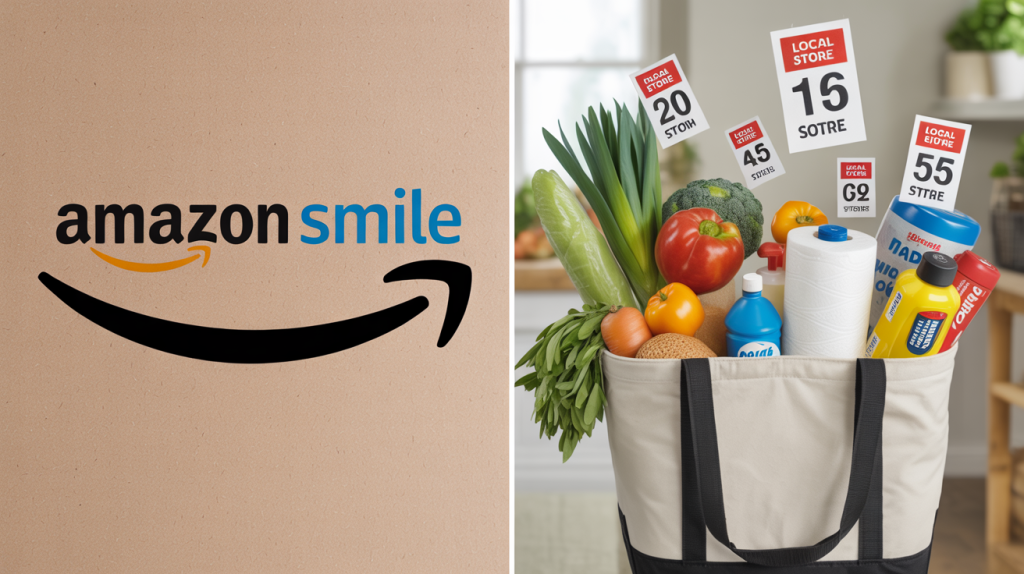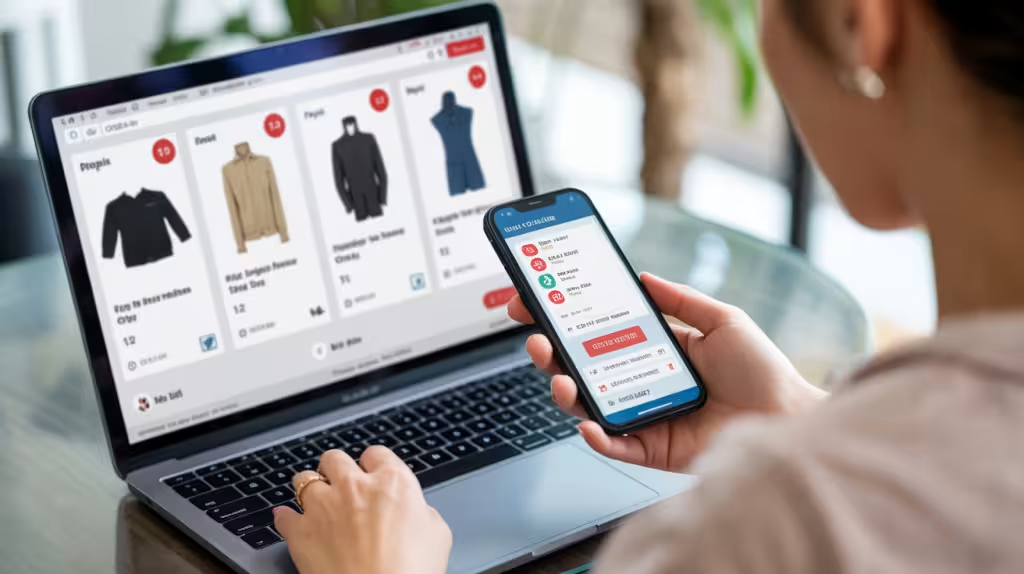We all want to make the most of our money, ensuring it stretches as far as possible and supports the life we want to live. With years of experience managing households and budgets, many of us have learned valuable lessons about thrift and smart spending. However, the marketplace is always changing, and sometimes, we can fall into spending habits without realizing there are more economical choices available. Identifying areas where we might be overspending is the first step toward significant savings.
This isn’t about drastic cutbacks or depriving ourselves of enjoyment. Instead, it’s about making mindful choices and discovering simple saving hacks that can free up funds for things that truly matter – perhaps travel, hobbies, helping family, or simply enjoying a little more financial breathing room. Adopting a mindset of frugal living where it counts can lead to surprisingly positive results. Let’s explore some common everyday items where we might be spending more than we need to, and how we can adjust.
1. Conquer Your Grocery Bill: Smart Swaps for Big Savings
The grocery store is a place where small changes can lead to big savings over time. It’s easy to get into a routine, but a little more awareness can really pay off.
1. Name-Brand Loyalty: Many of us grew up with certain brands and trust them. However, store brands (or generic brands) have come a long way in quality. Often, they are made by the same manufacturers as the name brands, just with different packaging. The taste and quality difference can be minimal, but the price difference is often significant.
Saving Hack: Try substituting one or two store-brand items for your usual name brands each week. You might be pleasantly surprised by the quality and the savings. Over a year, this simple switch can add up to hundreds of dollars.
2. Pre-Cut Produce & Convenience Foods: Pre-washed lettuce, diced onions, or fruit salads are certainly convenient, but you pay a hefty premium for that convenience. That extra labor cost is passed directly on to you.
Saving Hack: Buy whole fruits and vegetables. Washing and chopping them yourself might take a few extra minutes, but the savings are substantial. Plus, whole produce often stays fresher longer than its pre-cut counterparts. Think of it as a small investment of time for a good return.
3. Bottled Water: While convenient on the go, single-use plastic water bottles are expensive and not environmentally friendly. The cost of bottled water can be thousands of times higher than tap water.
Saving Hack: Invest in a good quality reusable water bottle and a water filter pitcher or faucet filter if you’re concerned about tap water taste. Refilling your bottle at home is practically free and much better for the planet.
2. Savor Drinks and Dining Without Draining Your Wallet
Enjoying a cup of coffee or a meal out is a pleasure, but frequency can make these items significant budget busters.
4. Daily Coffee Shop Visits: That daily latte or cappuccino from your favorite coffee shop can be a delightful ritual. However, at $4, $5, or even more per cup, this habit quickly adds up. For many, this can amount to over $100 a month!
Saving Hack: Become your own barista! Invest in a decent coffee maker, a French press, or even an espresso machine if you love specialty coffees. Experiment with different beans and flavorings. Making your coffee at home for a fraction of the price can save you a bundle. Occasional coffee shop visits can then become a true treat rather than a routine expense.
5. Frequent Restaurant Meals & Takeout: Dining out or ordering takeout is a nice break from cooking. But relying on it too often can strain your budget. Restaurant meals typically cost three to five times more than preparing the same meal at home.
Saving Hack: Plan your meals for the week and cook at home more often. Batch cooking on a weekend can provide easy meals for busy weekdays. When you do dine out, look for early bird specials, lunch deals, or senior discounts if available. Sharing an entrée or opting for appetizers can also reduce the bill.
3. Keep Your Home Sparkling and Your Budget Intact
Household supplies are necessary, but you don’t always need the most expensive options to get the job done.
6. Expensive, Single-Purpose Cleaning Supplies: The cleaning aisle is filled with specialized products for every imaginable task. Many of these contain similar ingredients and can be quite costly.
Saving Hack: Embrace simple, multi-purpose cleaners. White vinegar, baking soda, and lemon juice are inexpensive, effective, and environmentally friendly alternatives for many cleaning tasks. A good all-purpose cleaner can often do the job of several specialized ones.
7. Disposable Paper Products (Paper Towels, Napkins): Paper towels and napkins are convenient for quick cleanups, but their cost adds up, and they contribute to waste.
Saving Hack: Switch to reusable cloth napkins and microfiber cleaning cloths. They can be washed and reused hundreds of times, saving you money and reducing your environmental impact. Keep a roll of paper towels for really messy jobs, but try to use cloths for everyday spills and wiping.
4. Outsmart Hidden Fees in Banking and Credit
Financial services should help you manage your money, not drain it with unnecessary charges.
8. Unnecessary Bank Account Fees: Monthly maintenance fees, ATM fees for using out-of-network machines, or fees for paper statements can nibble away at your savings. Many people pay these without realizing there are alternatives.
Saving Hack: Review your bank statements for any fees. Contact your bank to see if you qualify for a no-fee account (many banks offer them for seniors or those with direct deposit). Consider switching to a credit union or an online bank, which often have fewer fees and better interest rates.
9. High Credit Card Interest Rates: Carrying a balance on credit cards with high interest rates can be incredibly costly. The interest charges can quickly overshadow any rewards or benefits the card offers.
Saving Hack: Prioritize paying off high-interest credit card debt. If possible, pay your balance in full each month. If you have good credit, explore balance transfer offers to a card with a 0% introductory APR, or call your current card issuer to request a lower interest rate. Using a debit card for everyday purchases can also help avoid accumulating debt.
5. Entertainment and Information for Less
Staying entertained and informed doesn’t have to come with a premium price tag. There are many wonderful, affordable options.
10. Full-Priced New Books & Movies: Buying booksร้อน off the press or newly released movies can be expensive hobbies. While supporting authors and filmmakers is great, there are more budget-friendly ways to enjoy their work.
Saving Hack: Your local library is a treasure trove! You can borrow books, e-books, audiobooks, and movies for free. Look for used bookstores, library book sales, or online marketplaces for discounted books. For movies, consider waiting for them to become available on streaming services you already subscribe to, or rent them for a lower price than purchasing.
11. Overstuffed Cable/Satellite TV Packages: Many cable and satellite packages come with hundreds of channels, but most of us only watch a handful regularly. Those hefty monthly bills often reflect services we don’t use.
Saving Hack: Review your channel usage. Call your provider to see if a smaller, less expensive package is available. Explore streaming services (like Netflix, Hulu, Amazon Prime Video) which can be much cheaper and offer a wide variety of content. An antenna can also provide free access to local channels.
6. Cut the Cord on Unused Subscriptions and Memberships
It’s easy to sign up for services and forget about them, leading to “subscription creep” where small monthly charges add up.
12. Forgotten Digital Subscriptions: Think about all those apps, streaming services, online news sites, or cloud storage plans you might have subscribed to. A free trial can easily turn into a recurring payment if you’re not careful.
Saving Hack: Regularly review your credit card and bank statements for recurring charges. Make a list of all your subscriptions and ask yourself if you truly use and value each one. Cancel those you no longer need. Many of us find we’re paying for two or three services that offer similar content.
13. Underutilized Gym or Club Memberships: A gym membership can be a great investment in your health, but only if you use it regularly. If your visits are few and far between, that monthly fee is going to waste.
Saving Hack: Be honest about your usage. If you’re not getting your money’s worth, cancel the membership. Explore alternatives like home workouts (many free videos are available online), walking in your neighborhood or local parks, or community center programs that might be more affordable or offer pay-as-you-go options.
7. Smart Health and Personal Care Spending
Looking after your health and appearance is important, but there are ways to manage these costs effectively.
14. Name-Brand Medications: When your doctor prescribes medication, the brand-name version can be significantly more expensive than its generic equivalent, even though they have the same active ingredients and efficacy.
Saving Hack: Always ask your doctor or pharmacist if a generic version of your medication is available and appropriate for you. Generics can save you a substantial amount of money. Also, compare prices at different pharmacies, as they can vary.
15. Costly Salon or Barber Visits: Regular haircuts, coloring, or styling can be a big expense. While looking good helps us feel good, there might be more economical ways to achieve this.
Saving Hack: Consider extending the time between salon visits. Opt for simpler, lower-maintenance hairstyles. Look for reputable beauty schools in your area, where services are often offered at a deep discount under supervision. Some stylists also offer senior discounts.
8. Reduce Your Utility Bills and Environmental Footprint
Energy and water are essentials, but we can often reduce our consumption and our bills with a few mindful habits.
16. High Energy Bills (Electricity & Gas): Leaving lights on in empty rooms, inefficient appliances, and poor insulation can lead to surprisingly high energy bills. Many of us use more energy than we realize.
Saving Hack: Be mindful of turning off lights and electronics when not in use. Adjust your thermostat by a few degrees (lower in winter, higher in summer when you’re not home or sleeping). Seal drafts around windows and doors. When replacing appliances, look for Energy Star certified models. Some utility companies offer free energy audits or discounts for seniors.
17. Leaving Electronics on Standby (Phantom Load): Many modern electronics continue to draw power even when they’re turned “off” but still plugged in. This is often called “phantom load” or “vampire power.”
Saving Hack: Unplug electronics like TVs, computers, chargers, and kitchen appliances when they are not in use for extended periods. Using power strips with an on/off switch can make it easy to turn off multiple devices at once. This small habit can reduce your electricity bill.
9. Optimize Your Communication and Tech Costs
Staying connected is crucial, but you don’t need to overpay for phone or internet services.
18. Overpriced Mobile Phone Plans: Many people pay for more data, minutes, or features than they actually use on their mobile phone plans. The “unlimited” plans can be tempting but might be overkill for your needs.
Saving Hack: Review your actual mobile phone usage (data, talk, text). Compare your current plan with offerings from your provider and competitors. Many carriers offer more affordable plans, including specific plans for seniors, that might perfectly suit your needs. You might not need the latest flagship phone either; a slightly older or more basic model can save you hundreds.
19. Paying for Excess Internet Speed: Internet service providers often try to upsell you to the fastest (and most expensive) plans. However, for everyday activities like browsing, email, and some video streaming, you might not need lightning-fast speeds.
Saving Hack: Assess your actual internet usage. If you’re mostly checking emails, reading news, and occasionally watching videos, a basic or mid-tier plan is likely sufficient. Call your provider to see if a lower-speed, lower-cost plan is available.
10. Avoid Common Spending Traps and Impulse Buys
Sometimes, it’s the unplanned purchases or the convenience markups that hit our wallets the hardest.
20. Impulse Purchases & Convenience Store Markups: Grabbing items at the checkout counter, buying snacks or drinks at a convenience store when you’re out, or succumbing to “special offer” displays can lead to a lot of unplanned spending. Convenience stores, in particular, charge significantly more for items you can get cheaper at a grocery store.
Saving Hack: Always shop with a list, especially for groceries, and try to stick to it. Eat before you go shopping to avoid hunger-driven impulse buys. For snacks and drinks when you’re on the go, plan ahead and bring them from home. Give yourself a “cooling off” period before making any significant unplanned purchase to decide if you truly need it.
By taking a closer look at these everyday expenses, we can all find opportunities to practice smarter saving hacks and embrace more frugal living principles. It’s not about deprivation, but about empowerment – making conscious choices that align with our financial goals and allow us to enjoy life more fully with less financial stress. Every little bit saved adds up, giving you more control and more resources for what’s truly important to you. Happy saving!















